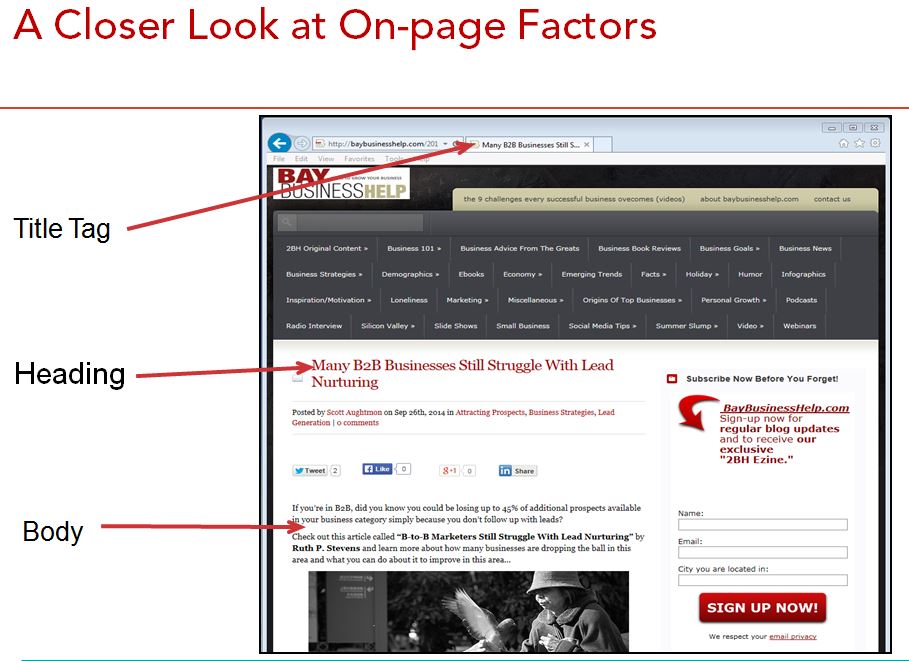Expert Feature: Why Website Design and SEO Don’t Always Work Well Together
As Search Engine Optimization (SEO) Consultants, we often work together with website design teams to design or redesign a company’s website.
Many times, website designers are puzzled or annoyed by our presence in this process and we’re often asked why we should work together.
We receive questions, such as, “Shouldn’t you just do your thing after we’re done?“
Of course, the answer is, “Not if you don’t want your client to pay for content twice and possibly incur charges for changes to functionality and tagging on the site.“
Let me explain. . . .
When the design team works with a client to design a new website or redesign an existing site, the team and client typically meet to discuss goals, navigation (pages to be included and the organization of those pages on the site), functionality, etc.
We find that many (not all) website design agencies without SEO experience often negotiate “clean” design without many words, fewer pages for services and sometimes a lack of a good call to action that provides for proper conversion of visitors to leads.
What a SEO Expert Might Recommend
Enter the SEO agency. . . by incorporating a SEO team into the website design process, organic search is built right into the site.
For example, the SEO expert may recommend the following:
Lots of words on pages.
Google needs words, not images, to rank a website page against competitive pages. The Google “crawler” cannot crawl and understand an image. SEOs recommend at least 350 words on a page. Of course, this request is often negotiated because a good SEO understands the need for quality design and rich content.
Separate pages for each service.
Each page on a website may be optimized for 1 to 3 “keyword phrases.” If a website includes a single page for multiple services, then keywords for each service is not possible. By breaking out each service into a separate page, targeted keyword phrases for each service can be applied. The “opportunity” for each service page to show up for appropriate keywords is increased by using this practice.
HTML tags.
SEO requires specific tagging of certain elements on a page. By including SEO expertise in the early stages of development of a website, SEO-friendliness is built in. For example, each page must include the ability to receive unique content for the <title> tag and meta description. The major headline that appears on each page should be tagged as an <h1>. If these tagging formats are not created during the design or redesign, the client incurs additional fees to make these changes later.
Keyword Density.
The incorporation of keyword phrases into the content of the paragraphs on each page is called “keyword density.” By incorporating keywords during initial content creation, future fees are reduced for rewriting content to include keyword phrases.
Google Searches On-Page Factors for Keyword Phrases
Lead conversion.
Most importantly, the SEO wants to make sure that a website will convert visitors to leads or sales for eCommerce and B2B sites. Website design agencies also provide this expertise; however, we find our input is often appreciated by all involved. Driving SEO traffic to a site is what we do; because non-converting organic traffic leaves clients unsatisfied.
Responsible business owner should always ask potential designers and developers about their experience with SEO.
If the provider does not offer this service, find a reputable SEO expert to help.
By incorporating SEO into the website design process, websites receive a better chance to be found on Google and Clients save valuable dollars.
Related article
- What Marketers Need To Know About The Changing Landscape Of SEO & Search Marketing (SLIDESHOW) (baybusinesshelp.com)



